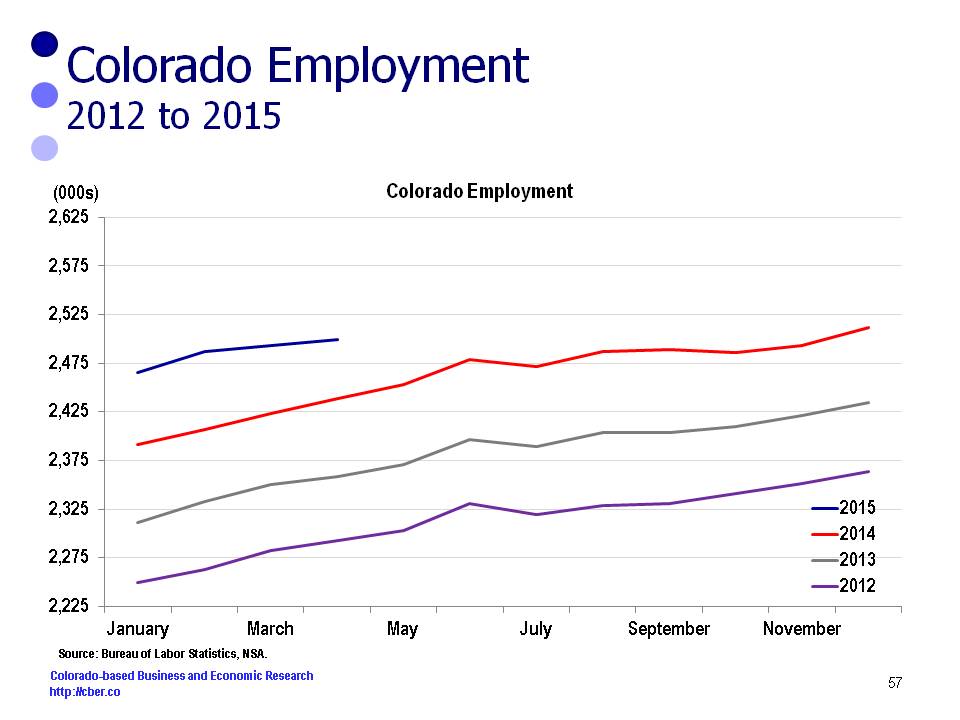BLS recently released April wage and salary employment data for Colorado. The job growth is softer than expected given the strength of the U.S. jobs numbers, projected improvement in the growth of the economy (GDP), and the outlook of purchasing managers as measured by the ISM manufacturing and non-manufacturing indices. Given the strength of the U.S. employment data, it seems reasonable for the state to be ahead of last year by 70,000 to 75,000 jobs, even with the slight decreases in the state oil and gas industry.
In April there were 34,400 jobs (NSA) in the Mining and Logging Sector. This is down about 1,300 jobs from December, 2014 but about 1,800 jobs above the April 2014 total. The sector had record employment this past December.
Looking beyond the oil and gas industries we see that about two-thirds of the job growth this year has been in Health Care; Accommodations and Food Services; Construction; Professional, Scientific, and Technical Services (PST); and Manufacturing.
Approximately 21% of all jobs added were in Leisure and Hospitality. The tourism industry is important to all 64 counties in the state. Colorado had a strong ski season and is poised to have a strong summer season.
About 10% of total jobs added were in the PST, Manufacturing, and Information sectors. These sectors are the source of primary and advanced technology jobs. Primary jobs attract wealth from outside the state that is spent locally, they export a significant portion of their goods and services, and they often pay wages that are much greater than the state average.
Probably the hottest topic on the economic front has been the price of housing and rentals. The Case Shiller Home Price Index for Denver indicates that home prices increased by 10.0% over the past year and 1.4% on a month-over-month basis. Rentals have risen at slightly lower rates.
The comparative strength of the Colorado economy over the past five years has caused labor shortages in key occupations, i.e. it is necessary to attract talent from outside Colorado. Out-of -state workers from some parts of the country will experience sticker shock when they look at home prices in the metro area.
On a positive note, increased appreciation in home prices increases the “paper wealth” of individuals. This will cause home owners and landlords to remain confident in the economy and willing to spend money. The increase in prices, and ultimately property taxes, is a two-edged sword. Property owners don’t like the increase, but schools and local governments will see an increase in funding.
At the moment the increase in housing prices does not appear to have deterred job growth. Stay tuned – that may change! It will continue to be an interesting year for the Colorado economy.
